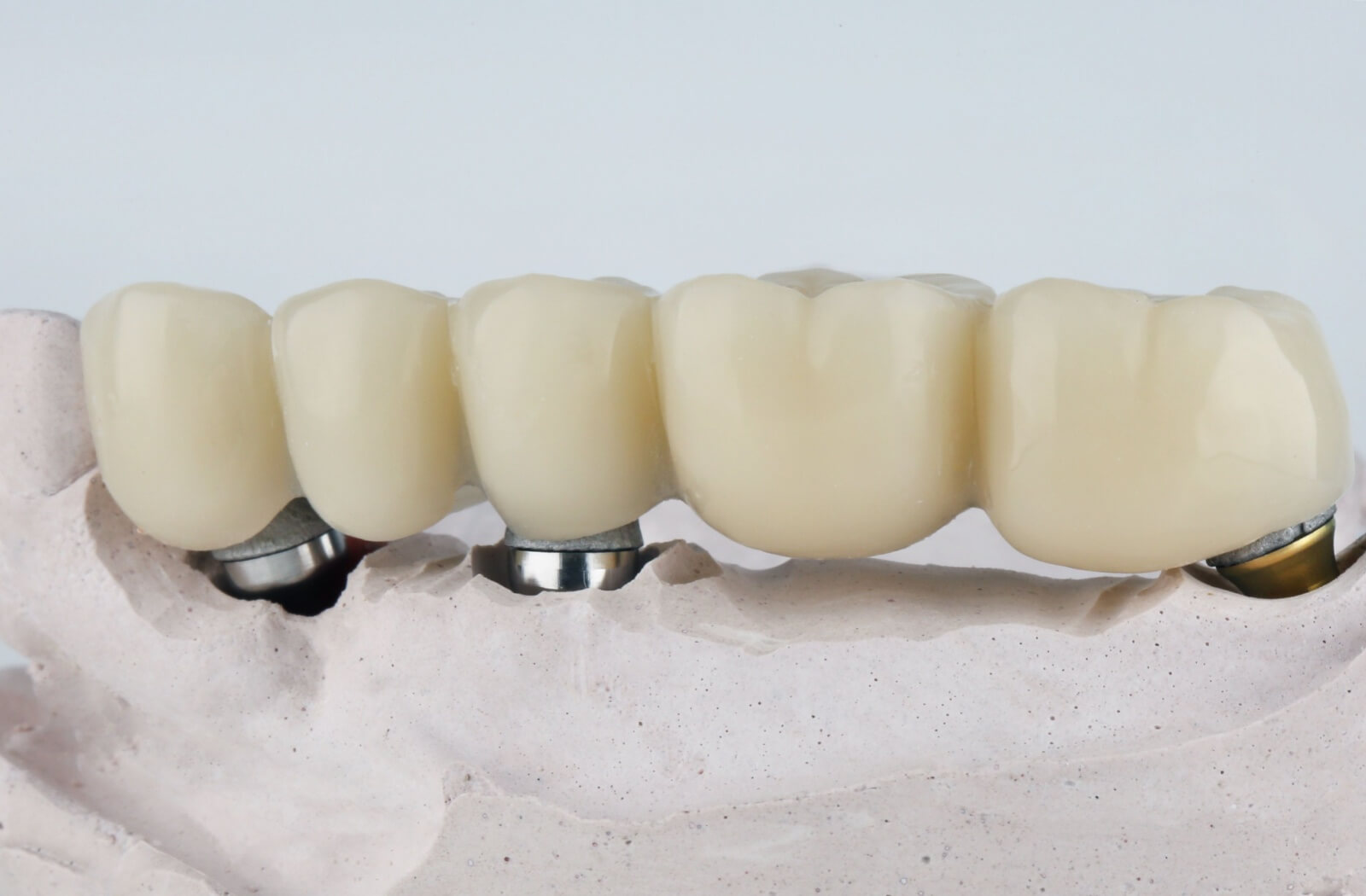
Are you wondering how to restore that winning smile of yours? If you're missing one or more teeth, you've likely encountered 2 popular options: dental bridges and dental implants. Each has unique benefits and considerations, making the decision a tad overwhelming. Knowing your options and consulting with a professional will help you better understand what is best for you and your needs.
What Is a Dental Bridge?
A dental bridge is an effective solution for replacing missing teeth by "bridging" the gap between them. The teeth on either side of the gap where a tooth is missing are covered with crowns, which are like protective caps. These crowns help hold the new replacement tooth securely in place, effectively bridging the gap. These bridges are crafted to match the natural look and feel of your teeth.
Benefits of Bridges
Dental bridges offer several advantages, including:
- Enhanced functionality: They can help restore chewing and speaking abilities, allowing you to enjoy your favourite meals without worry.
- Aesthetic improvement: Dental bridges are customized to blend seamlessly with your natural teeth, enhancing your smile's overall appearance.
- Shift prevention: They help maintain the alignment of your existing teeth, preventing them from shifting into the empty space.
- Less invasion: Between dental bridges and implants, bridges are the less surgically invasive.
The Bridge Process
The process for getting a dental bridge typically includes:
- Consultation and preparation: Your dentist will assess your specific needs and prepare the adjacent teeth for the bridge.
- Impression making: Impressions of your teeth are taken to create a prosthetic that matches your natural teeth.
- Bridge placement: Once the bridge is ready, your dentist will fit and seal it into place for a secure and natural feel.
Suitability for Bridges
A dental bridge might be the right choice if:
- You're seeking a quicker restoration to address your dental needs, as you may have an event or occasion coming up where you want to feel confident about your smile.
- You have healthy teeth on either side of the gap, making you an ideal candidate for solutions that can bridge the space without extensive procedures.
- Medical conditions or personal preferences exclude surgery, so you’re looking for non-invasive options that can still provide effective results and restore your smile without the prolonged recovery time associated with surgery.
However, a bridge might not be suitable if the adjacent teeth are compromised or there is insufficient support.
Exploring Dental Implants
Dental implants offer a more permanent solution by replacing the missing tooth root with a titanium post. This post supports a crown that looks and functions just like a real tooth.
Benefits of Implants
Here's why implants are a popular choice:
- Durability: Dental implants are known for their longevity. With proper care and regular dental check-ups, they can last a lifetime, making them a reliable investment in oral health.
- Natural appearance: One of the most appealing aspects of dental implants is their ability to closely mimic the look and function of natural teeth. This not only restores a beautiful smile but also enhances confidence, helping you to eat, speak, and laugh without worry.
- Bone preservation: Unlike dentures, dental implants play an important role in maintaining jawbone structure. They stimulate the bone just like natural tooth roots, helping to prevent potential bone loss over time, which can lead to changes in facial structure and oral health issues.
The Implant Process
Getting dental implants involves a few key steps:
- Consultation and evaluation: Your dentist will evaluate your oral health, often using special imaging to assess the bone.
- Surgical placement: A titanium implant post is inserted into the jawbone to act as a stable root.
- Crown attachment: Once the implant has healed and integrated with the bone, a crown is placed to complete the restoration.
Suitability for Implants
Consider dental implants if you:
- Want a long-lasting solution
- Have healthy gums and sufficient bone density
- Prefer not to alter surrounding teeth
Implants may not be suitable if you have certain medical conditions, poor oral health, or insufficient bone density.
Bridge or Implant? Factors to Consider

Choosing between a dental bridge and an implant involves considering various personal and medical factors. Both options require healthy oral conditions, but your unique circumstances will determine the best path.
Factors Influencing Your Decision
When deciding, consider:
- Oral health: The condition of your gums, teeth, and bones will guide your choice.
- Longevity: Implants typically last longer, whereas bridges may need replacement over time.
- Cost: While implants are often more expensive initially, they can be cost-effective long-term.
Taking Professional Advice
It's important to consult with your dentist, as they can provide insights specific to your oral health. A personalized consultation helps you make an informed decision that suits your lifestyle and medical needs.
Making Your Decision
Ultimately, the choice between a dental bridge and an implant should be made with professional guidance. At Image Dental Care, our experienced team can help evaluate your oral health, discuss your goals, and recommend the best treatment for you.
Restoring your smile is more than just an aesthetic choice; it's about reclaiming your confidence and quality of life. Schedule a consultation with us today and take the first step towards a healthier, more radiant smile!